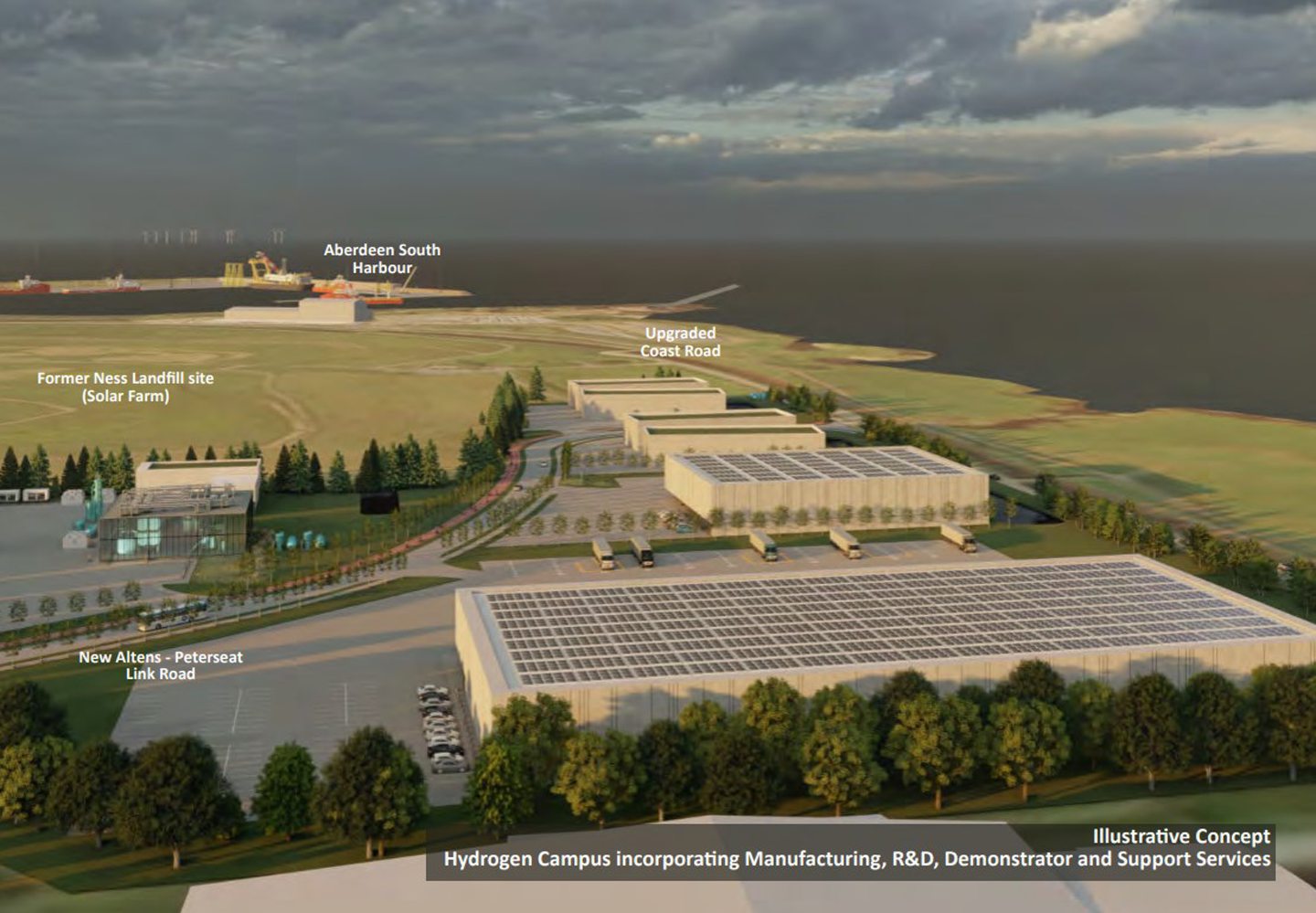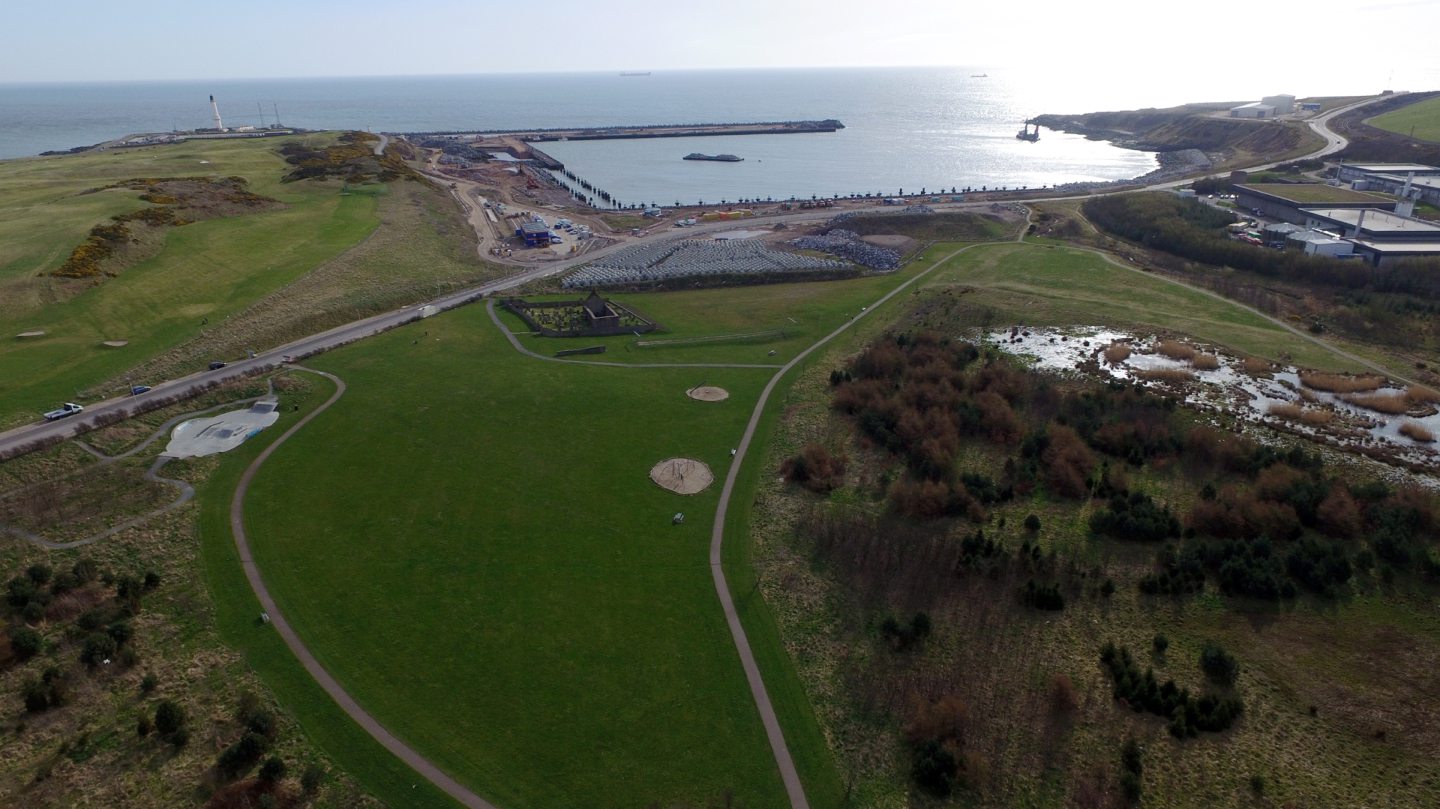A lawyer representing campaigners against proposals to industrialise part of an Aberdeen park has told the Court of Session that Aberdeen City Council failed in its legal duty to perform an impact assessment on the plans.
Friends of St Fittick’s Park (FSFP) are challenging Aberdeen City Council’s plans to turn the park into a site called an Energy Transition Zone (ETZ).
ETZ Ltd, which is poised to fund the project, is a private sector-led and not-for-profit company spearheading the North East of Scotland’s energy transition ambition, receiving governmental support.
Solicitor advocate Mike Dailly, representing FSFP, told the Court of Session in Edinburgh that Aberdeen City Council had failed to carry out an equality impact assessment (EIA) at any point in relation to the plans.
This amounted, he told the court, to a failure by the council to discharge its responsibilities as a “listed authority” under the Equalities Act, and suggested that if the court accepted this it would render the plans unlawful.
“If I can convince the court of that point, that’s sufficient to make a submission that the decision itself was unlawful,” he explained.
Quoting from the Equalities Act, Mr Dailly explained that as a “listed authority” the council was obliged to carry out an impact assessment in relation to any “proposed new or revised policy or practice.”
He argued that a meeting of the full council on September 11 2023, in which the proposals were discussed, met this condition and should have triggered an assessment, in that it reached “a significant operational decision in relation to the park”.
He also described the detrimental impact the development of the park would have on local people with protected characteristics.
This “policy decision,” he said, “will do significant disadvantage for children, older persons, and those with disabilities who use the park, and it will have a profoundly adverse impact on their health and wellbeing.”
He added that GPs in Aberdeen had produced a “policy position setting out their concerns … particularly from a health perspective.
Judge Lord Fairlie took issue with Mr Dailly’s interpretation of the Aberdeen City Council meeting of September 11 2023 as reaching a policy decision.
He said that, in his view, it only amounted to the council tasking the chief officer with a “fact-finding exercise” to learn out more about the proposed development by interested parties including, but not limited to, ETZ Ltd and the Port of Aberdeen.
He said it would not be possible for the council to carry out an impact assessment until more details about any proposals were known, asking Mr Dailly: “How can it carry out an impact assessment until it knows what it’s carrying out an impact assessment on?”
Representing Aberdeen City Council, Niall McLean, told the court that the meeting of September 11 was a continuation of an existing policy rather than a “new or revised policy or practice”, and as such did not require an EIA.
He added that the challenge brought by FSFP was “premature” as the council had not ruled out other options at that point.
“It’s clear from the context of the decision itself, and the decisions that supported it, that this decision is a step along the way, part of a wider decision-making process which may or may not result in developing the park,” he said.
Mr Dailly earlier argued that ETZ Ltd had a “masterplan” setting out its proposals, and that it had “an active planning application to industrialise St Fittick’s Park” which, he said, had been initiated “way before the decision in September last year”.
He also said that, since the September meeting, ETZ had already carried out “substantive work” on the site, including drilling, boring holes and fencing off parts of the park for public safety.
In his response, Mr McLean pointed out that authorisation for ETZ Ltd to carry out “groundworks” on the site had been granted on January 15 2024, with a view to informing the council about the “viability of the project”.
Earlier, Mr Dailly also pointed to an “apparent bias” on the part of the council in relation to the proposal to develop the park, saying there was an “interest or apparent interest” in ETZ Ltd by Aberdeen City Council co-leader, Christian Allard.
Mr Allard, he explained, was a council-appointed director of a company called One, which he said is linked to ETZ Ltd and has “aligned business goals”.
However, Lord Fairlie pointed out that the council would have been aware of his role in One given it was the council itself that had appointed him to it, and given that Mr Allard had already declared his interest in the company at a previous council meeting.
He explained: “The apparent bias argument doesn’t hold because everybody know of his involvement in the company. They put him there and he had declared it.”
The judge added that in any event the council vote on September 11 passed 32 votes to 12, and that if Mr Allard had declined to participate in it the outcome would have been the same.
Mr Dailly subsequently agreed to withdraw this argument.
The hearing continues.
Recommended for you



 © Supplied by Ironside Farrar
© Supplied by Ironside Farrar © Supplied by Ironside Farrar
© Supplied by Ironside Farrar © DCT Media
© DCT Media






